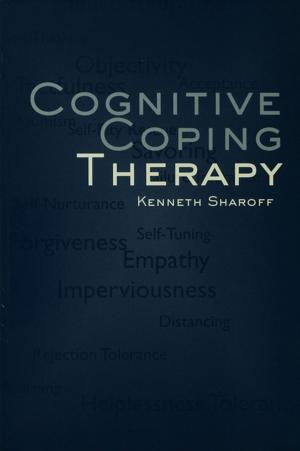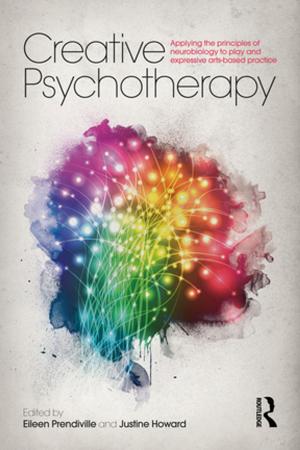Reaching through Resistance
Advanced Psychotherapy Techniques
Nonfiction, Health & Well Being, Psychology, Counselling, Personality, Psychotherapy| Author: | Allan Abbass | ISBN: | 9780988378872 |
| Publisher: | Seven Leaves Press | Publication: | May 15, 2015 |
| Imprint: | Seven Leaves Press | Language: | English |
| Author: | Allan Abbass |
| ISBN: | 9780988378872 |
| Publisher: | Seven Leaves Press |
| Publication: | May 15, 2015 |
| Imprint: | Seven Leaves Press |
| Language: | English |
A New Metapsychology of the Unconscious Helps Patients Succeed in Psychotherapy
About half of all psychotherapy clients do not respond--or even worsen--in treatment. Why? They unknowingly use treatment-defeating behaviors, or resistances, that prevent successful collaboration with the therapist. It's as if they cannot allow treatment to succeed. This can be frustrating and demoralizing for both the therapist and the client.
How can you and your client detect and handle treatment resistance? How can you reach through to the person beneath this resistance--the person your client was meant to be?
For treatment to succeed, you need to recognize and challenge treatment resistance from the first session. Reaching through Resistance will help you
• turn a client against his or her own long-held defeating behaviors
• regulate intense anxiety when strong feelings are activated
• activate and process previously avoided impulses and feelings
Using the interventions in this book for handling resistances, you can empower a collaborative, vigorous treatment alliance and mobilize the healing forces within your client.
"Numerous clinical vignettes show how to put theory into practice, leading to enduring change...If you want to know how to help clients change, this book is essential reading."
--David Malan, DM, FRCPsych, noted researcher and author
"Abbass demonstrates how one can reach behind the resistances of even the most repressed and fragile character types and offer them genuine, lasting change...a gold mine of clinical insight."
--Stanley B. Messer, PhD, Dean and Distinguished Professor, Graduate School of Applied and Professional Psychology, Rutgers University
Allan Abbass, MD, is a professor of psychiatry and psychology at Dalhousie University in Halifax, Canada. He is a highly sought-after consultant, speaker, and clinical supervisor in North America and Europe.
About half of all psychotherapy clients do not respond--or even worsen--in treatment. Why? They unknowingly use treatment-defeating behaviors, or resistances, that prevent successful collaboration with the therapist. It's as if they cannot allow treatment to succeed. This can be frustrating and demoralizing for both the therapist and the client.
How can you and your client detect and handle treatment resistance? How can you reach through to the person beneath this resistance--the person your client was meant to be?
For treatment to succeed, you need to recognize and challenge treatment resistance from the first session. Reaching through Resistance will help you
• turn a client against his or her own long-held defeating behaviors
• regulate intense anxiety when strong feelings are activated
• activate and process previously avoided impulses and feelings
Using the interventions in this book for handling resistances, you can empower a collaborative, vigorous treatment alliance and mobilize the healing forces within your client.
"Numerous clinical vignettes show how to put theory into practice, leading to enduring change...If you want to know how to help clients change, this book is essential reading."
--David Malan, DM, FRCPsych, noted researcher and author
"Abbass demonstrates how one can reach behind the resistances of even the most repressed and fragile character types and offer them genuine, lasting change...a gold mine of clinical insight."
--Stanley B. Messer, PhD, Dean and Distinguished Professor, Graduate School of Applied and Professional Psychology, Rutgers University
Allan Abbass, MD, is a professor of psychiatry and psychology at Dalhousie University in Halifax, Canada. He is a highly sought-after consultant, speaker, and clinical supervisor in North America and Europe.
A New Metapsychology of the Unconscious Helps Patients Succeed in Psychotherapy
About half of all psychotherapy clients do not respond--or even worsen--in treatment. Why? They unknowingly use treatment-defeating behaviors, or resistances, that prevent successful collaboration with the therapist. It's as if they cannot allow treatment to succeed. This can be frustrating and demoralizing for both the therapist and the client.
How can you and your client detect and handle treatment resistance? How can you reach through to the person beneath this resistance--the person your client was meant to be?
For treatment to succeed, you need to recognize and challenge treatment resistance from the first session. Reaching through Resistance will help you
• turn a client against his or her own long-held defeating behaviors
• regulate intense anxiety when strong feelings are activated
• activate and process previously avoided impulses and feelings
Using the interventions in this book for handling resistances, you can empower a collaborative, vigorous treatment alliance and mobilize the healing forces within your client.
"Numerous clinical vignettes show how to put theory into practice, leading to enduring change...If you want to know how to help clients change, this book is essential reading."
--David Malan, DM, FRCPsych, noted researcher and author
"Abbass demonstrates how one can reach behind the resistances of even the most repressed and fragile character types and offer them genuine, lasting change...a gold mine of clinical insight."
--Stanley B. Messer, PhD, Dean and Distinguished Professor, Graduate School of Applied and Professional Psychology, Rutgers University
Allan Abbass, MD, is a professor of psychiatry and psychology at Dalhousie University in Halifax, Canada. He is a highly sought-after consultant, speaker, and clinical supervisor in North America and Europe.
About half of all psychotherapy clients do not respond--or even worsen--in treatment. Why? They unknowingly use treatment-defeating behaviors, or resistances, that prevent successful collaboration with the therapist. It's as if they cannot allow treatment to succeed. This can be frustrating and demoralizing for both the therapist and the client.
How can you and your client detect and handle treatment resistance? How can you reach through to the person beneath this resistance--the person your client was meant to be?
For treatment to succeed, you need to recognize and challenge treatment resistance from the first session. Reaching through Resistance will help you
• turn a client against his or her own long-held defeating behaviors
• regulate intense anxiety when strong feelings are activated
• activate and process previously avoided impulses and feelings
Using the interventions in this book for handling resistances, you can empower a collaborative, vigorous treatment alliance and mobilize the healing forces within your client.
"Numerous clinical vignettes show how to put theory into practice, leading to enduring change...If you want to know how to help clients change, this book is essential reading."
--David Malan, DM, FRCPsych, noted researcher and author
"Abbass demonstrates how one can reach behind the resistances of even the most repressed and fragile character types and offer them genuine, lasting change...a gold mine of clinical insight."
--Stanley B. Messer, PhD, Dean and Distinguished Professor, Graduate School of Applied and Professional Psychology, Rutgers University
Allan Abbass, MD, is a professor of psychiatry and psychology at Dalhousie University in Halifax, Canada. He is a highly sought-after consultant, speaker, and clinical supervisor in North America and Europe.















